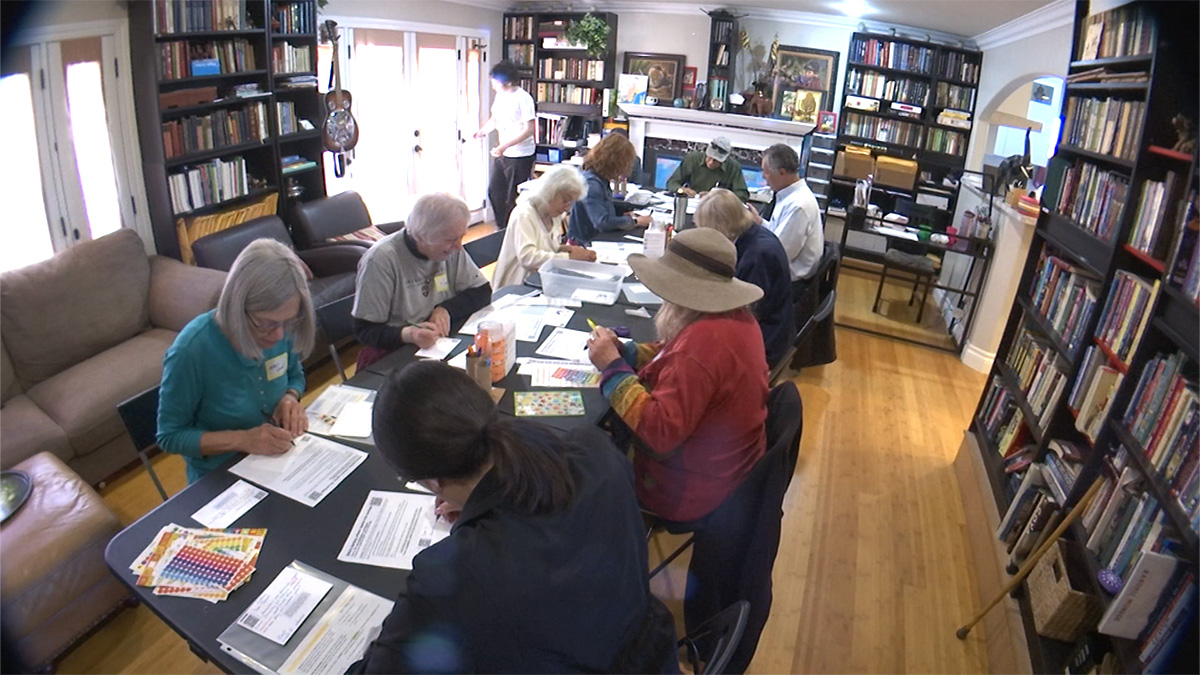The woman who was sexually assaulted by a former Stanford University swimmer last January fielded a barrage of personal questions in court that dissected much of her private life, according to newly released trial transcripts.
Questions touched on her drinking and partying habits, height, weight, relationship status, and even what she ate the night of the attack, according to the documents, which shed light on the cross examination at the hands of prosecutor Alaleh Kianerci and Brock’s attorney, Mike Armstrong. The victim, identified only as Jane Doe, described it as "traumatizing" in a letter that was read in court and quickly went viral.
"Instead of taking time to heal, I was taking time to recall the night in excruciating detail, in order to prepare for the attorney’s questions that would be invasive, aggressive, and designed to steer me off course, to contradict myself, my sister, phrased in ways to manipulate my answers," she wrote. " ... This was a game of strategy, as if I could be tricked out of my own worth."
Santa Clara County Judge Aaron Persky in June sentenced Brock Turner, 20, to six months in jail after a jury convicted him of sexually assaulting the 23-year-old Palo Alto woman who had passed out outside a campus fraternity house.
The six-month sentence led to the judge becoming the target of a recall effort amid a national outcry from many who viewed the jail term as too lenient. Persky also ordered Turner to register as a sex offender for life, attend drug and alcohol counseling, and to submit to random drug and alcohol tests.
The documents released Tuesday are from a March 21, 2016, hearing, when Jane Doe gave a detailed account of the events she could remember from the night of January 17, 2015.
"At the beginning of your testimony on Friday, you gave us your height and weight. Were those numbers that you gave us what your height and weight was on January 17th of 2015?" Armstrong said at the start of his cross-examination.
"Estimating, yes," Jane Doe said.
Armstrong pressed the issue, inquiring again if "nothing is radically different" with her body.
"No," she answered.
Local
During the trial, Jane Doe, who was 22 years old at the time of the sexual assault and not a student of Stanford University, was asked about her education, employment, friends, familiarity with campus Greek life, and new, but "very stable and very exciting" relationship. She also revealed that her dinner the night of the ill-fated Kappa Alpha fraternity party consisted of "stir-fry and broccoli."
Jane Doe also said she drank "four shots of whiskey and one glass of champagne" and "was starting to feel buzzed and more silly and loose, peaceful" by the time she reached the Jan. 17 party, where she recalled consuming a "free pour" of vodka as well as beer.
In response to her testimony, Armstrong asked if she intentionally downed the red Solo cup of vodka.
"You drank it all down at once, right?" he asked.
"Yes," Jane Doe responded.
"Like, chugged it," he continued. "And that was a decision you made, right?"
Armstrong also harkened back to Jane Doe’s time as a student, asking, "And you did a lot of partying in college, right?"
Although Jane Doe defended herself by saying she would not call herself a "party animal," Armstrong said: "Well, you did tell the police when you were interviewed that you did a lot of partying there too, right?"
"I'm a social person," she replied, admitting also that she had suffered from "blackouts" after imbibing too much alcohol in the past.
In the emotional letter that was later read aloud in Congress, Jane Doe described being "pummeled with narrowed, pointed questions."
She wrote: "The sexual assault had been so clear, but instead, here I was at the trial, answering question like: How old are you? How much do you weigh? What did you eat that day? Well what did you have for dinner? Who made dinner? Did you drink with dinner? No, not even water? When did you drink? How much did you drink?"
In court, Jane Doe told Kianerci that she no recollection of events after about midnight on Jan. 18 and outlined her treatment at a hospital in San Jose later that morning.
When she woke up, Jane Doe saw dried blood and bandages on her hands and elbows, but, when she was told she may have been sexually assaulted, her initial reaction was: "You have the wrong person. I thought they must be confused. I thought, 'I just want to find my sister and go home.'"
A few minutes later, though, Jane Doe – who underwent HIV testing and was given shots to protect her from sexually transmitted diseases – realized hospital and law enforcement officials weren’t mistaken.
"… I went to pull down my underwear, and my underwear was gone. That is when it hit me that what the … deputy had been talking about was real. And I was suddenly very scared," she said.
The Associated Press contributed to this report.



